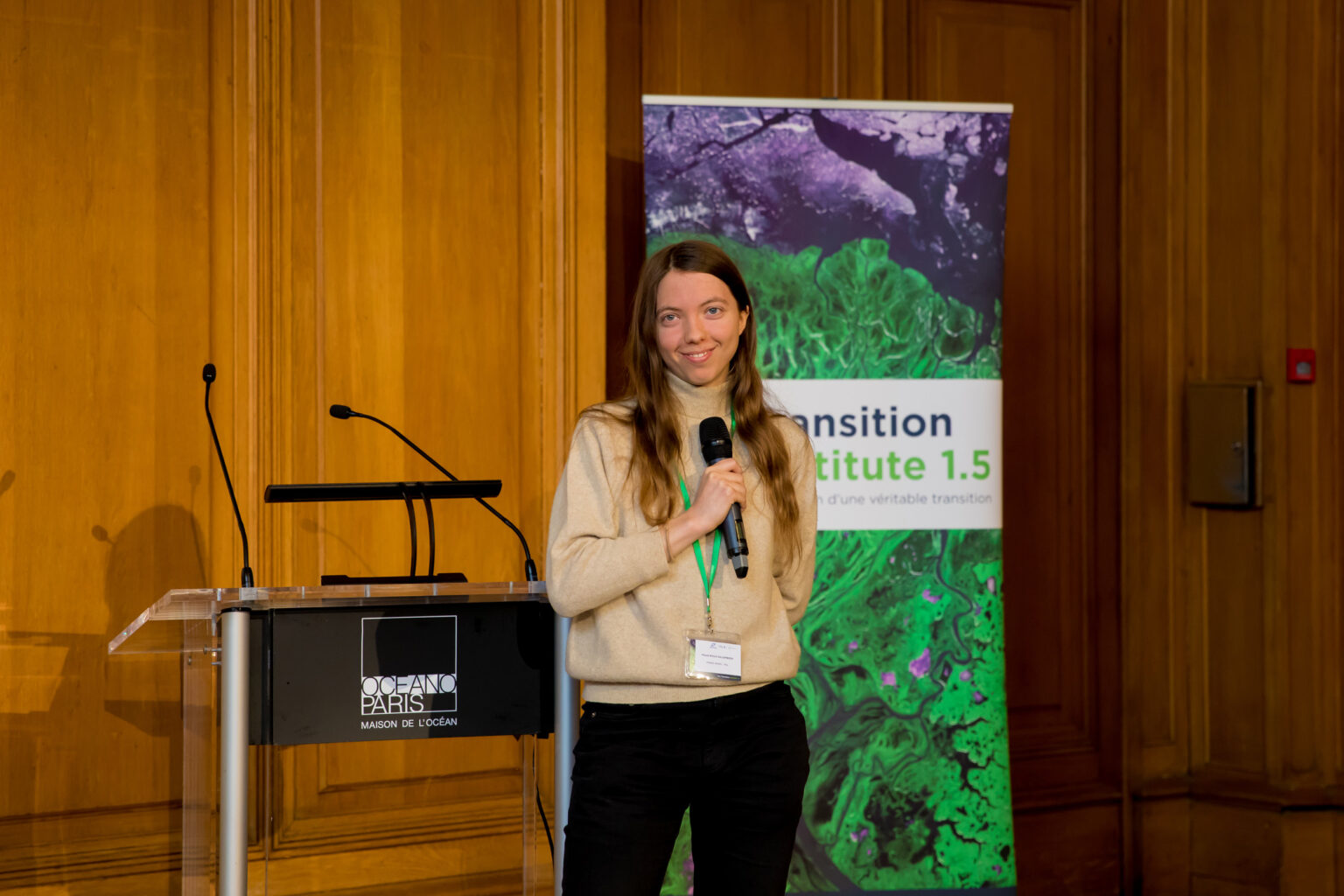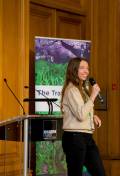Publié le Vendredi 02 juin

The Transition Institute 1.5 organized the very first TTI.5 Environmental Controversy Award, on May 31 at the Maison de l’Océan in Paris, during the TTI.5 Forum devoted to the security challenges of climate change.
The winning controversy project was “Beets, birds and neonicotinoids”, presented by Maud Roux-Salembien.
The TTI.5 Prize was awarded by Matthieu Mazière, Director of the Civil Engineering Program at Mines Paris-PSL, and Madeleine Akrich, Research Director at Mines Paris – PSL.
During the TTI.5 Forum, five projects on environmental controversies were presented to the public:
- « La réforme de l’assurance des récoltes en France. Quels enjeux et débats
- autour de la loi du 22 mars 2022 ? », presented by Loïc Fourquet and Lucille Lacoste (with the participation of Damien Caperaa, Jean Catry, Jean Baptiste Flieller, Pierre Frode, Corentin Hennion, and Thomas Labro).
- Read the controversy project [FR]
- « Le déclin des insectes, une réalité inquiétante ? », presented by Antoine Gauchot and Jeremy Costanzo (with the participation of Candice Courbière, Jeanne-Marie Hays, Jorge Luis Ardilas Villabona, Léo Simplet, Sophie Laperrouze, and Stephen Piet).
- Read the controversy project [FR]
- « L’éolien en mer : atout essentiel de la transition énergétique ou nuisance inutile ? », presented by Matthieu Suire (with the participation of Cynthia Balech, Louis Pont, Shuyu Ding, Maëlle Baronnet, Matthias Avice, Myrtille David, and Xinbei Jang).
- Read the controversy project [FR]
- « L’exploitation minière sous-marine, une nécessité pour la transition ou un désastre écologique à venir ? », presented by Youmna Bahout, Alice Dagicour, and Maïlys Quilhot (with the participation of Timothée Blondel, Théophile Candela, Quentin Guitet, Marine Papet, and Léa Trin).
- Read the controversy project [FR]
- « Betteraves, oiseaux et néonicotinoïdes », presented by Maud Roux-Salembien (with the participation of Sylvain Caillaud, Arsène Ferrière, Léopold Moeneclaey, Grégoire Michel, Aymeric Plessier, Joseph Redaud, and Victoire Rossignol).
- Read the controversy project [FR]
The Controversy Projects at Mines Paris – PSL
This prize honors the best work on an environmental controversy topic among the projects carried out by students of the Civil Engineering Program at Mines Paris – PSL as part of the “Description of Controversies” course supervised by Madeleine Akrich, a sociologist and research director at the Center for the Sociology of Innovation (CSI).
In their third year of the Civil Engineering Program at Mines Paris – PSL, students are required to take the “Description of Controversies” course as part of their curriculum. The course aims to raise awareness among engineering students about the evolving professional and civic context they will encounter. It introduces them to the uncertain world of scientific and technical research by focusing on the description of a specific object: sociotechnical controversy.
The study of controversy involves a case study approach. A group of students tracks a real-time controversy to uncover its complexity and uniqueness. They are guided by a team of sociologists who specialize in the analysis of science and technology, and who assist the students in developing an empirical, pragmatic, and well-argued perspective.
















